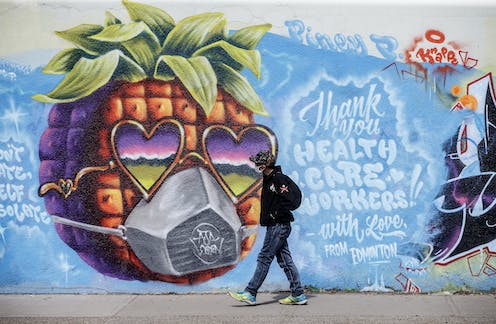
One of the abiding lessons from the COVID-19 pandemic is how poorly prepared we were to deal with a crisis of that magnitude.
Naturally, politicians have promised to develop better strategies for the future, but so far these promises have not been fulfilled.

THE CANADIAN PRESS/Sean Kilpatrick
Perhaps surprisingly, one exception has come from the province of Alberta. In January, the United Conservative Party (UCP) government established a blue-ribbon panel of experts, chaired by Reform Party founder Preston Manning, to investigate whether there are “lessons to be learned from Canada’s responses to COVID-19 which will better prepare us to handle future public emergencies.”
Because the UCP has since been re-elected, and since the Manning committee is expected to release its final report soon, the government is likely to take its findings seriously.
Table of Contents
A deeper look
Cynics might anticipate that Manning, as a lifelong conservative, will produce a report that does little more than justify the UCP’s actions during the pandemic. But an early leak from the committee suggests that it may be forced to take a deeper look into the way that such policies are constructed.
That leak revealed that when Albertans were asked to suggest how the government should deal with future health crises, they expressed strong support for increased reliance on medical and scientific expertise — and decreased dependence on the opinions of politicians.
These responses challenge the committee to involve itself in a debate that has long engaged political scientists and economists: Can science tell us what the best public policies are? And the committee will probably soon discover that the answer is “no.”
The reason for this can be seen using an area of economics called public choice theory. It argues that every public policy decision can be divided into two elements — factual and psychological — and it concludes that science has little to tell us about the latter.
With respect to COVID-19, factual elements include information about how the disease is transmitted, the effect it has on those who contract it and the impact of masks and vaccinations on rates of infection.
Read more:
Lessons from COVID-19 for the next pandemic: We need better data on workplace transmission
Psychological elements include public perception of the harms of infection, the willingness to accept the risk of illness and death and the cost of accepting restrictions on personal freedom.
The importance of this distinction is that while reliable, scientific information is often available about the factual elements of policy, the same cannot be said for the psychological elements.

THE CANADIAN PRESS/Jeff McIntosh
How to measure the emotional costs?
For example, while there is scientific evidence about how diseases are transmitted and the effectiveness of various treatments, no reliable methods exist for measuring the emotional cost of a bout of COVID-19, the value of lives lost to disease or the impact on people when public health policies restrict personal freedoms.
In these cases, scientific expertise may be helpful in identifying what society’s options are but it cannot determine which of those options is necessarily the best for different people in different circumstances.
Early in the pandemic, governments had to decide which groups would be the first to receive scarce vaccines, for example. Seniors over young adults? Health-care workers over police, teachers or supermarket staff?
“Science” had no answers to these questions, which require that value judgments be made. Instead, politicians were forced to make decisions based on social and psychological factors, none of which could be measured factually.
Similarly, science offered little psychological help to parents when they were deciding whether they should have their children vaccinated against COVID-19. All that medical experts could say was that there were both costs — though minimal — and benefits to vaccination. After that it was up to parents to weigh the costs versus the benefits.

THE CANADIAN PRESS/Justin Tang
Low vaccination rates for kids
In Alberta, most parents decided that the psychological costs of vaccination outweighed the fact-based benefits as measured by scientists. By April 2023, only 9.7 per cent of parents of children one to four years old had chosen to have their children receive even one dose of the COVID-19 vaccine, compared with more than 80 per cent among all other age groups.
This suggests the Manning committee is unlikely to recommend that public policy be based solely on scientific evidence. As science has no way to measure psychological costs and benefits, it cannot answer questions like: What level of quarantining will the public accept in return for reduced health risks? How should the lives of senior citizens be weighed against the lives of front-line workers?
The only way the committee can meaningfully contribute to the debate about how public policy should be made is if it tackles head-on the question of how the psychological impacts of policy can be measured.
![]()
Christopher Bruce does not work for, consult, own shares in or receive funding from any company or organization that would benefit from this article, and has disclosed no relevant affiliations beyond their academic appointment.























